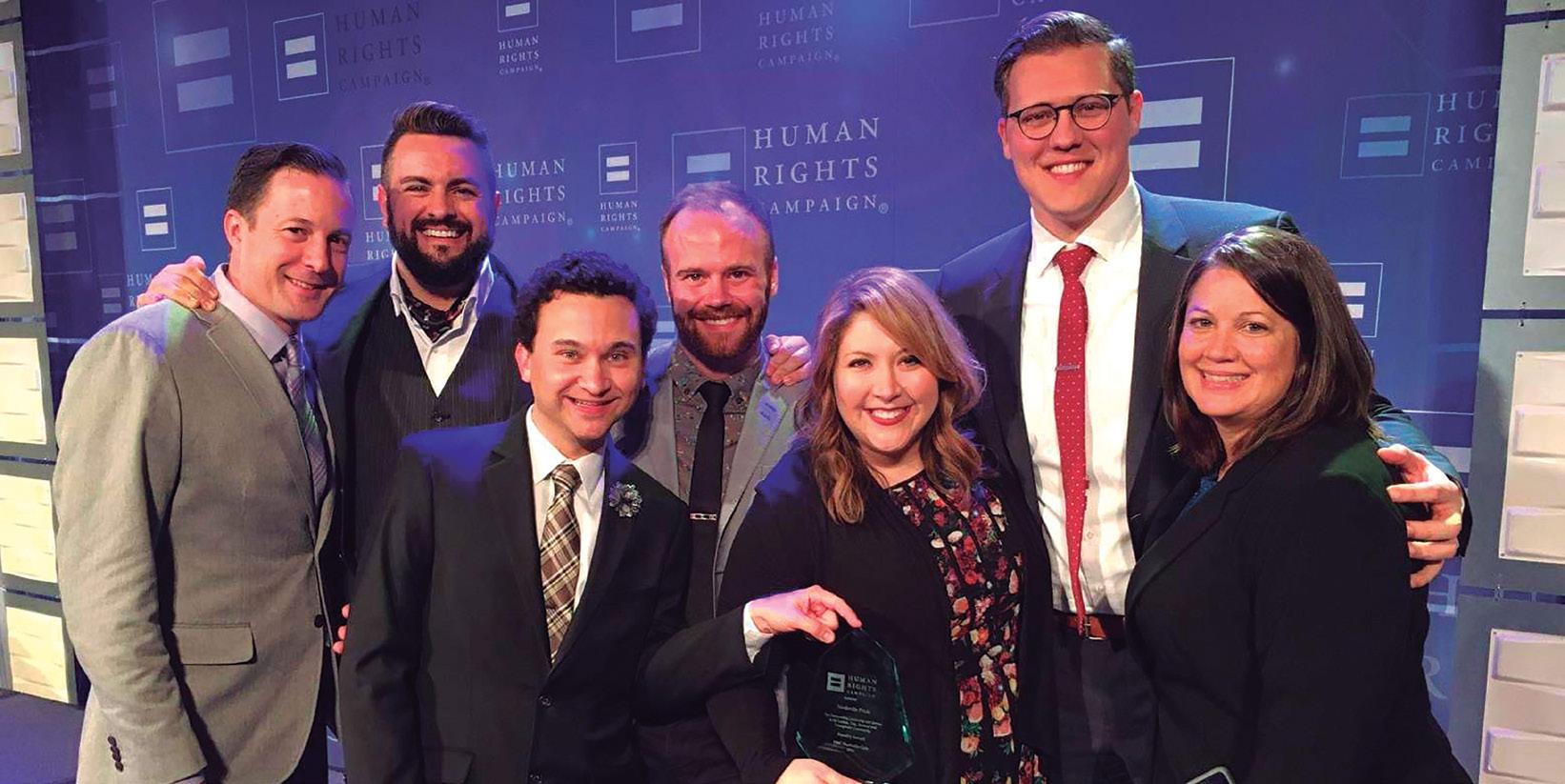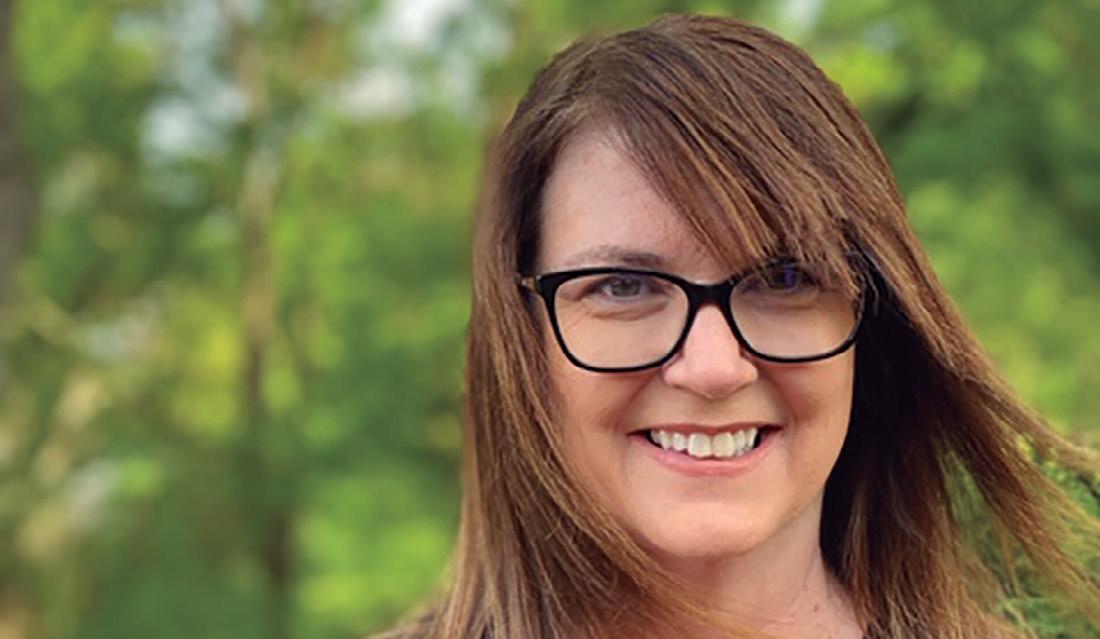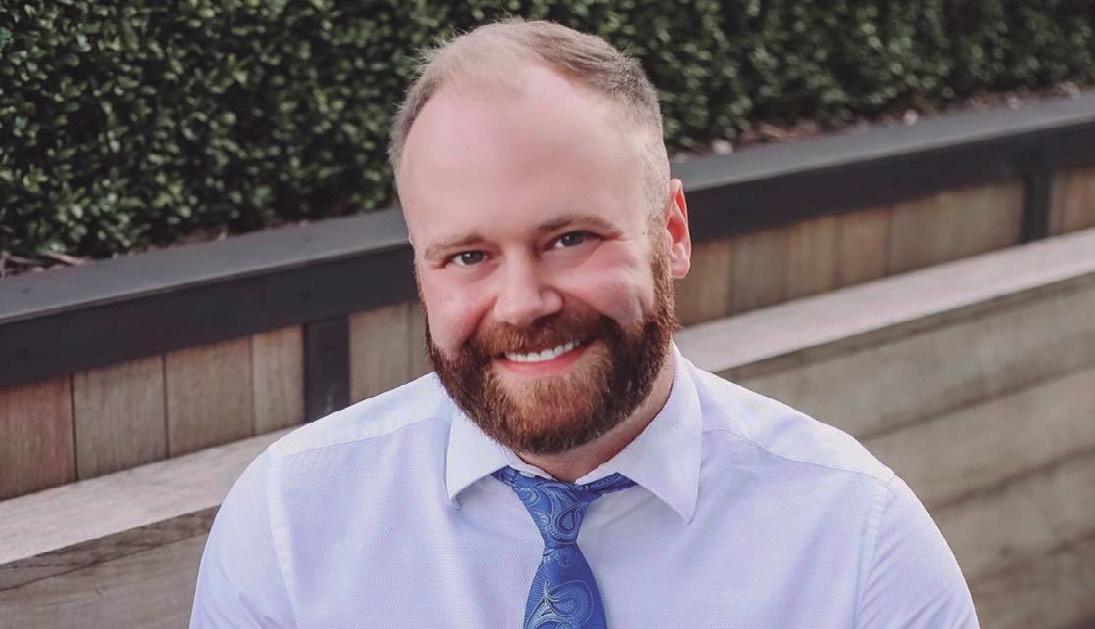
10 minute read
Pride Will Overcome: Recent Presidents on the Challenges & Triumphs of Nashville Pride
Recent Pride Presidents on the Challenges and Triumphs of Nashville Pride
COVID-19 has defined 2020 and has reshaped our social landscape, altering what had seemed so certain and unchangeable. Financial trouble, social disapproval, and fear of violence, as well as other difficulties, have all threatened to derail Nashville Pride in the past. But through it all, the local LGBTQ+ community and the Nashville Pride Board, along with innumerable volunteers, have overcome to facilitate our community’s show of Pride. This year is no different. Though Pride has been postponed, plans are underway to allow the community to celebrate in June and to hold safe and fun events at a date in fall that has yet to be determined.
Advertisement
We asked our recent Pride Presidents to share their thoughts about past difficulties Pride has overcome and some of their proudest Pride moments. Here’s what they had to say!
Pam Wheeler (2002, 2003, 2009)
I was on the festival committee in 2000 and 2001…I think I have about 8 years in volunteering with Pride. And I look back at it as a wonderful time. My fondest memories involve the people and the friendships formed while volunteering for Nashville Pride. Never underestimate the bonding experience, from deadlines, drama, money challenges and common goals. We spent countless hours together—meetings, fundraisers, community events, calls, socials after meetings—and it makes for strong relationships. It would have probably made for strong reality TV as well.
The biggest challenges? This is an easy one. Money. The biggest challenge was always money. In 2000, a group of people wondered when pride would happen and soon learned the Pride organization had dissolved. A community meeting was called to figure out what to do. At that meeting, OPEN (Our Pride Encompasses Nashville) was formed.

It was already June, so the festival was planned for September that year (90 days after that first meeting). We raised funds by begging for money (“Dollar for Pride?”) at bar entrances—the Chute on Fridays, Connection on Saturdays. The event was at Bicentennial Mall and by all accounts it was a success. Compared to today’s standard, it would look like a hometown carnival. From the pet drag show (my nephew put a rainbow wrap on his turtle) to the Roller Skating Pride Week event, it had a charm to it. This was my first experience with Nashville Pride – as a volunteer.
One of the first pride meetings after the 2000 festival brought out new faces. I remember it well—new volunteers demanding new standards—why weren’t there Pride TV ads? Why didn’t the event have alcohol? Critiques can be hard to hear but the drive and motivation from new people was awesome. With more people came more connections and resources.
The next festival was moved to Centennial Park and alcohol sales came with it (albeit a confined area within the park). During these successful years, funds continued to be the challenge. The budget was about $80k and it was incredibly hard to get cash sponsors. We landed Showtime as a 5k sponsor in 2002 and that was HUGE. Pride was not the go-to organization for donations. I timed out as President after a couple years and the organization continued to thrive.
After the 2008 pride celebration at Centennial Park, a group of friends were tossing around the idea that we might get involved in Pride. A few weeks or months later, I was elected President and Jack Davis joined the board. Jack’s addition added a next level skill set to festival planning. The new board decided that big entertainment would be a top priority. In our minds, this meant moving the festival to River Front Park.
The new board inherited the organization with a lot of debt. Our plan to get out of debt involved: 1) VIP area at event, 2) Core 100—now the Friends of Pride plan, 3) Alcohol sales throughout the event, and 4) big name entertainers to draw bigger crowds. In 2009, that meant Deborah Cox and Lady Bunny.
As the festival approached, we found ourselves cash-poor and needing tens of thousands of dollars to pay entertainment as they arrived in Nashville. We didn’t have it. With very few options, we set a meeting with the owners of Tribe and Play and made an extremely hard ask for a bridge loan. On the Thursday before the festival, they loaned us $25k. We were able to pay them back by the end of the day of the festival. It was a stressful time to say the least.
My mom was diagnosed with Stage 4 lung cancer at the end of 2009. I gave a back seat to most of my community obligations at that time. I left the organization with strong leadership, but a weak bank account. As we all know, they survived and thrived. I could foresee sponsorship being tougher to obtain in the near future, reviewing budgets and existing partnerships will be a key strategy.
Randall Roop (2010, 2012)

I started as a volunteer with Nashville Pride in 2005, and first joined the Board in 2008. It was great to be a part of the festival growing over the years. Each location change was met with challenges that proved to be worth taking. I remember setting up the beer tent in Centennial Park! I was honored to serve as President in 2010 and 2012, and continued on the board until 2014. It was a year-round effort of the entire volunteer staff to produce a festival of this size (reflecting back 6 years ago)—it takes year-round planning for sponsorship, permits, contracting, etc.
COVID-19 has cancelled 2020 Pride celebrations, but what hasn’t it cancelled! I would hope the Board takes the time to reflect and maybe reinvent the celebration(s) in some aspects.
Joseph Woodson (2014)

When I joined the Pride Board we were significantly in debt, we had almost no volunteer database, no membership program, and were still trying to figure out the best place to host our celebration. Some might say the overall outlook was bleak. But In true Nashville form, we had a newly formed and recruited board, ready to roll up our sleeves and get the work done. By the time I was President, we had setup a volunteer program with over 200 community volunteers and developed a top-notch membership program full of awesome Pride benefits!
During my presidential term, two major challenges were most important to address: 1) creating a missing rainy day (or savings) fund, and 2) we had to move locations from Riverfront Park. The rainy-day fund idea was supported widely by the board and to date there is still a savings fund, so we can ensure Nashville Prides will happen for years to come. The location move was concerning at first, but with the guidance and research of our awesome festival coordinator, Jack Davis, an opportunity presented itself. Then, we luckily found ourselves at a location better than imaginable—at the doorstep of our city government in Public Square Park.
My favorite pride memories are the people, the ones I’d have never met if not for Nashville Pride, and their stories. I remember one of my first years on the board talking with a mother-son volunteer team from very rural Alabama. I remember the son, who was 16 years old at the time, said there wasn’t anything like Pride near where he lived. His mother interjected tearfully with “... and so I brought you up here to see there are so many people like you, and you are never alone.”
In the long conversation that followed, he went on to explain how hard it was growing up without knowing out people, but that pride - and his mother - gave him “hope.” They hugged, and I hugged them—how could you not—and that family showed up to volunteer at every pride I helped organize since then... They inspire me still. If you can’t find hope where you are, keep looking. It’s out there. And that’s what Pride for some is all about: “hope.” Providing a safe place where we can be our true selves, celebrate who we are, where we’ve been, and remember where we have left to go.
Really, the only reason all of Pride’s accomplishments were possible is because of our Nashville LGBTQI+ community and the all-volunteer Pride board. So, anytime someone asks, “Why doesn’t Pride have/ do [insert your idea]?” the answer might be “Because YOU haven’t volunteered and made it happen yet.” So, during this distance-pride, I challenge folks to take time to plan how YOU can help your LGBTQI+ community post- and during-COVID-19. Be that “hope” that 16-year-old talked to me about years ago. Our community has seen scarier times than this pandemic, and I know we will come out of it even stronger.
Claudia Huskey (2015)

My favorite memory from my year as PRIDE President was the festival turning into a big celebration for marriage equality. At the time, I was campaign for Megan Barry’s mayoral campaigns, so right before the festival started, I was able to witness the very first, legal same-sex marriages in Nashville. Watching my dear friends Lisa and Wendy Howe get married was the very best part of that weekend. So many, including the amazing Abby Rubenfeld, had worked for decades to achieve equality for beautiful couples all over the country. Being a part of that special day is something I will always remember. PRIDE 2015 as very special, quickly followed by 2017 when I was able to meet and witness the gift to the world that is Lizzo.
As the first ally president of the PRIDE board, I was honored my fellow board members trusted me to lead our team to organize the most successful festival in the history of PRIDE, to that date. I saw it as my mission to show Nashville we are hosting a celebration for everyone, the LGBTQ community as well as their families, friends, neighbors, elected officials, everyone can have PRIDE in their heart. Over the years, my biggest smiles at the festival come when I see families with children dancing with drag queens.
The year I was president of PRIDE we had lots of challenges, including very hot weather, it was only our second year at Public Square Park, we had ambitious goals to create a “rainy day” savings fund, but we had invested more in artists/entertainment than we ever have before, and there were security issues at the festival with protestors. Every year there are unique challenges, but the ultimate goal is the same. I have every confidence this current group of leaders will navigate the COVID-19 crisis while working to create a wonderful experience for our community and keeping safety the highest priority.
Phil Cobucci (2017)

A year after I started serving on the Nashville Pride Board, marriage equality became the law of the land. While that was a time of great celebration, we soon realized that the attacks against our community would continue through hateful legislation, policy erasure, and violent attacks on members of our community. Celebrating Pride became much more than the need to celebrate our visibility and existence following June 26, 2015.
Being PROUD is many things, and over the course of my time with Nashville Pride, I have learned what it means––and most certainly what it does not mean. I can tell you that being proud and a member of the LGBTQIA+ community is not hiding behind words, it is not fear or shame. it is not judging your neighbor, and it most certainly is not hateful.
What it is, however, is yet another human perspective. A perspective to be valued, respected, and recognized like so many others that are woven into the richness of human culture.

We still have so much to overcome as a global LGBTQIA+ community, and Nashville Pride is just one event out of hundreds worldwide that exist for us to celebrate our people and our history, while also educating the global community on what full equality is. Pride festivals and events are a place where one can come out, be proud of who they are, walk hand in hand with a partner, wear the clothing they want to, use the bathroom they want to, be free from judgment and feel completely safe. Not to mention the empowering effect of celebrating diversity, life, and equality.
There is PRIDE in being out and open. We still have a long road ahead to achieve full and complete equality for our community, but each year, these events help change minds, lift spirits and develop bonds that we wouldn’t see if we stayed hidden in a closet.









